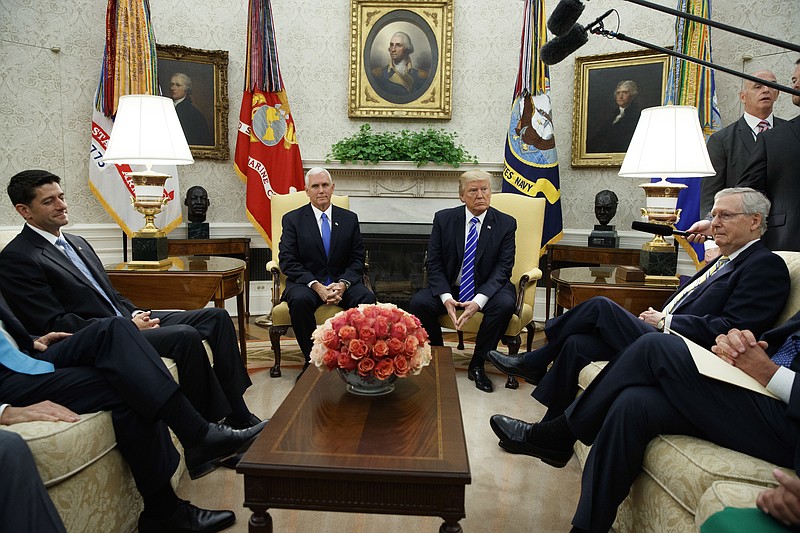"If con is the opposite of pro, then isn't Congress the opposite of progress?"
- Satirist Jon Stewart, formerly of "The Daily Show."
"Suppose you are a member of Congress. And suppose you are an idiot. But I repeat myself."
- Mark Twain
It's easy to criticize Congress. The House and Senate are collectively saddled with an approval rating dangerously close to single digits due mostly to partisanship and dysfunction. No wonder many Americans believe that congressional dithering often "fixes" problems with half-measures.
Congress watchers generally think that's remarkable for at least two reasons. Members are collectively smart, politically agile and patriotic. There is little doubt they want to do what's best for Americans.
But doing what's best becomes more difficult, unfortunately, when congress members seen by many as captives of a stagnated system beset by seemingly intractable problems.
This year so far, congressional members are in unenviable circumstances, forced to work with no clear idea of the president's wishes. Meanwhile an implacable legislative calendar presents formidable challenges.
Congress has historically managed to put differences aside to resolve serious differences and advance good governance. An apparent consensus that emerged in recent months suggested there would be few if any changes in the way Congress has usually dealt with major issues.
But then Wednesday happened.
President Trump left GOP members and conservative operatives slack-jawed when at a bipartisan White House meeting he embraced the Democrats' proposal for providing disaster relief for hurricane victims, linked to something generally considered anathema to both parties: raising the nation's debt ceiling.
In the weeks leading up to Wednesday's meeting it was assumed Congress had to approve the debt ceiling measure before Sept. 29 for two compelling reasons that always drive that vote: avoiding a budget default and the increased likelihood of a government shutdown.
Not being stupid, most members of Congress were well aware than a shutdown in today's environment would have a cataclysmic fiscal impact on our entire financial system: government, business and private citizens.
By accepting the Democrats' proposal for a debt ceiling increase ending near the end of December, Trump upended the GOP's 18-month alternative, which would have avoided another such vote until well after the 2018 midterm elections.
Democrats were as pleased with Trump's decision as Republicans were stunned. But to be fair, cynics are probably safe in suggesting that it would be unwise to assume that Trump could now be relied upon to do the heavy lifting necessary to make his presidency more than a ceremonial position.
That would be a welcome development considering that his contribution to the legislative process involved hectoring House and Senate leaders on their responsibilities or denouncing them via relentless tweeting. Bad enough to foul his own political nest. But it revealed a special type of gall to attack those he'd need should he ever get more involved in working for his own legislative agenda.
In that vein Trump announced Tuesday to end the Deferred Action for Childhood Arrivals (DACA) program for some 800,000 young men and women brought here illegally as children.
But he added a six-month caveat. If Congress fails to legalize DACA through legislation, he promised to "revisit" the issue. Congress surely knows it has been warned.
Even in politics, nature abhors a vacuum and that presents Trump with a choice.
He can continue assailing those who disagree with him. Or he can realize that compromise is the mother's milk of politics and thus achieve more political successes. Otherwise, look out for a continuing fusillade of tweeted condemnation.
Michael Loftin is a former opinion editor of The Chattanooga Times.
